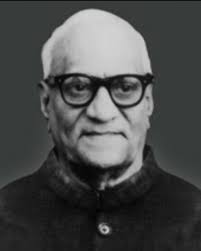Understanding the Role of the Vice President of India

Introduction: The Importance of the Vice President
The Vice President of India serves as the second-highest constitutional authority in the country, playing a crucial role in the functioning of the government. The office, established by the Constitution of India, has evolved significantly since its inception, influencing both legislative and executive branches. Understanding the role of the Vice President is essential for grasping how India’s democracy operates.
Main Body: Key Responsibilities and Functions
The Vice President is elected by an electoral college composed of the elected members of both Houses of Parliament, serving a term of five years. One of the primary responsibilities of the Vice President is to act as the Chairperson of the Rajya Sabha, the upper house of Parliament. In this capacity, the Vice President presides over sessions, maintains order during debates, and ensures that parliamentary procedures are followed.
In addition to legislative duties, the Vice President also plays a pivotal role during the presidential vacancy and can assume the President’s responsibilities temporarily. This duty is crucial for maintaining governmental stability.
The Vice President often represents India in various diplomatic and cultural events, strengthening international relations. Recent Vice Presidents, including the current officeholder, Jagdeep Dhankhar, have worked to engage in meaningful dialogues with global counterparts and showcase India’s rich heritage abroad.
Challenges and Observations
Despite its significant role, the vice presidential role has faced challenges regarding visibility and influence. Unlike the President or Prime Minister, the Vice President often remains in the background, leading to debates about the potential of the office to contribute more actively to national discourse. Advocacy for a more pronounced role has emerged, emphasizing the need for greater involvement in policy discussions.
Conclusion: The Continued Relevance of the Vice Presidency
In conclusion, the Vice President of India holds a vital position within Indian governance, balancing legislative, executive, and diplomatic duties. As India continues to evolve politically and economically, the role of the Vice President may also transform, potentially leading to increased engagement with pressing national issues. Observers anticipate that future Vice Presidents will seek to leverage their positions to promote greater visibility and influence, making the office integral to India’s democratic process. Understanding this role is essential for citizens who wish to engage more meaningfully in their democracy.









